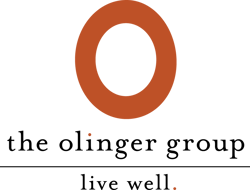Market research isn’t just getting answers. In fact, it’s 50% asking the right questions. At The Olinger Group, we can help you ask the right questions, but I’m going to quote a little Jerry McGuire here and say, “Help Me, Help You.”
The secret to getting actionable data from a market research study is making sure everyone involved is on the same page before we go behind the one-way glass, before we pick up the phone, before we send out a survey. That means you must get everyone on the same page–your CEO, Joe in Marketing, Leslie in Sales, other stakeholders, and your outside market research team. In other words, get out the catnip–it’s time to start herding cats. As painful as getting everyone’s input might be, the last thing you want is a CEO with raised eyebrows. You know, the ones that imply, “Why didn’t you think to ask this?”
The truth is it takes info to get info. Here are five basic yet critical questions to answer to enable a successful research experience.
- What do you want to know?
Is your brand reaching the right people? Are you speaking the right language? If your advertising isn’t resonating, why not? The What will guide everything, including the instrument you employ to get your information (i.e., a survey, a moderator discussion guide, or an observational research guide).
As market researchers, we pride ourselves on having pretty good gut instincts, but we’re not mind readers. If an objective is not identified and communicated early in the process, it’s possible we won’t get you all of those a-hah moments you’re paying us for (there go that CEO’s eyebrows again).
- How do you plan to use this information?
Let’s say you want to understand how people feel about your product or service. We can absolutely find that answer for you, but will it really be enough? Will that answer tell you if people use your product or service, what they are willing to pay for it, how they might use it, what could be improved, or how to message its benefits to drive interest? Nope. It doesn’t work that way. But if we know how you are going to use the information, we can design the study to draw out the specific answers you need. Again, help us help you.
- Who do you want to learn from?
If you’re selling shampoo, hotel stays, or socks, we could take a general approach and talk to a wide variety of consumers because pretty much everyone uses these products/services. But what if you sell high-end shampoo, a luxury resort experience, or compression socks? General doesn’t cut it anymore. We might need to narrow our focus to a specific gender, income level, or health condition.
In short, you must be clear on who you want to learn from. And when you’ve figured out who you want to learn from, think about who that audience is and the best way to engage with them. On this point, I’ll give my favorite example of the disastrous potential of not thinking about who you want to learn from – I once received a request to conduct a 30-minute survey (fine so far) with people who were diagnosed with ADHD (umm, that’s not going to work).
- What type of information do you need?
Do you want to learn the “why” or the “what” or both?
Qualitative studies generally seek to understand “why” people think, feel, and behave the way they do. It offers the ability to collect nuanced insights that cannot be gleaned from a survey. These types of studies are often used in the information-gathering phases of product/service development.
On the other hand, quantitative studies use numbers and statistics to determine what groups or what proportions of people think or act in a certain way. They allow you to generalize the results of the study across a population or populations with a high degree of certainty. These types of studies are often used for quantifiable objectives such as: How many people are aware of my brand? What pricing level will give me the most success? And what drives satisfaction or interest?
- What is your timeline?
Being thoughtful in the approach, recruiting the right study participants, and learning the story that the data reveals require time and attention. Some methodologies are more labor and time intensive than others, and some audiences are more difficult to reach. And let’s be honest, sometimes things change unexpectedly. A realistic timeline takes all of that into consideration.
So, when is the best time to engage a market research firm?
- When you can answer the five questions above, and
- When you don’t need the answer tomorrow (a few weeks from now might be doable. We can chat.)
Knowledge is power. So, herd your corporate cats and figure out the answers to the five questions above. Then share those answers with your favorite market research firm ( ) and get ready for a win/win partnership!



